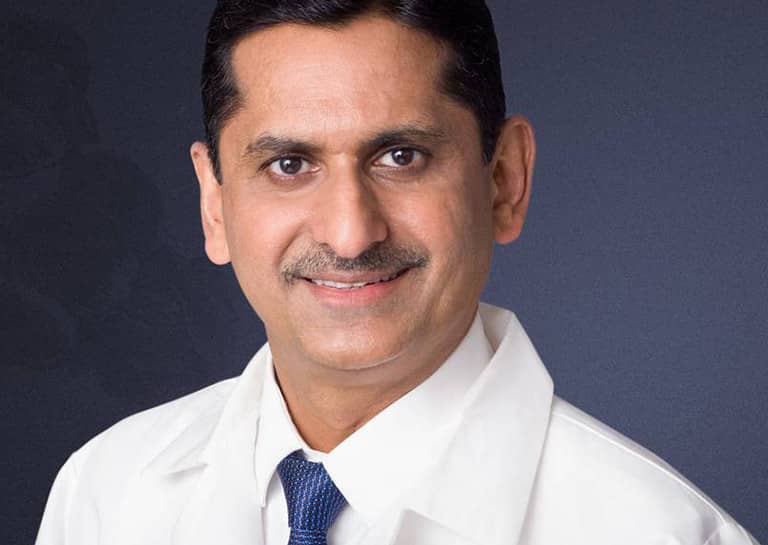Full-mouth reconstruction involves multiple dental treatments to rebuild or replace most or all your teeth. It achieves harmony with your teeth, gums, muscles, and bones. It begins with a comprehensive examination to determine the status of your oral health, including the condition and function of your teeth, bite, jaw, and other oral cavities.
When Is Full-Mouth Reconstruction Needed?
After a thorough examination and x-rays, Dr. Thomas might recommend full-mouth reconstruction if most or all your teeth are affected by any of these conditions:
- Badly worn
- Broken
- Cracked
- Damaged by trauma
- Deteriorating from periodontal (gum) disease
- Extensively damaged by medical conditions, genetics, or certain medications
- Failing fillings
- Loose
- Missing
- Severely decayed
- Temporomandibular joint (TMJ) dysfunction
What Are the Goals of Treatment?
If you have missing or damaged teeth, if you have worn down your teeth, or if your gums, bite, and jaw aren’t healthy, the reduced function will affect you in other ways. In addition to giving you an attractive smile, full-mouth reconstruction can eliminate or reduce symptoms associated with improper function, including:
- Treat TMJ disorder
- Alleviate associated facial, neck and jaw pain
- Eliminate headaches
- Eliminate earaches
- Alleviate speech problems
- Restore normal vertical dimension of the face
Full-Mouth Reconstruction Treatment Options
Several procedures might be required to restore or replace your teeth, improve the function of your mouth, and give you a proportionate smile that’s in harmony with your facial features. You might need one or more of the following:
- Bone grafting – Grafting builds up bone volume. It’s sometimes required to repair damage from gum disease, keep teeth in place, or provide support for dental implants.
- Crown lengthening – It reshapes your bone and gum tissue to expose more of your teeth. Dr. Thomas might use this procedure to make your teeth look longer or to access and treat damage or decay beneath the gumline.
- Dental bonding – You can receive composite bonding to conceal minor gaps, cracks, chips, or stains. Dr. Thomas applies the composite directly to your teeth while you’re sitting in the dental chair.
- Dental bridge – If you have one or more missing teeth, a dental bridge—a series of connected dental crowns—can replace them. Your natural teeth or dental implants can anchor a bridge.
- Dental crowns – Crowns protect severely damaged or decayed teeth. They are also used to restore dental implants.
- Dental implants – If you have missing teeth, dental implants can replace them. The structure of an implant mimics a natural tooth. Read details on our dental implants page.
- Dentures – You can receive full dentures from Dr. Thomas. He uses high-quality materials and denture teeth that make your smile look natural.
- Gum recession treatment – Dr. Thomas uses a minimally invasive technique to correct receding gums. No scalpel is involved.
- Implant overdentures – Dental implants will stabilize your dentures and prevent them from lifting, slipping, or falling out. The overall function of your dentures will improve.
- Periodontal treatment – Swollen, bleeding, or receding gums are signs of gum disease. Dr. Thomas will restore your gum health before doing any cosmetic work on your teeth.
- Porcelain veneers – Veneers can give you a complete smile makeover or transform a single tooth. If your teeth have gaps, cracks, chips, or discoloration, porcelain veneers can help. Read our porcelain veneers page for more information about this treatment.
- Teeth whitening – Brightening your smile makes it look younger. We will whiten your natural teeth before you receive porcelain crowns or veneers to ensure the shade of your teeth and the restorations match.
If you have a series of issues with your oral health, full-mouth reconstruction might be the answer to resolving them. Call us to schedule an appointment for an exam with Dr. Siny Thomas or request an appointment online.


